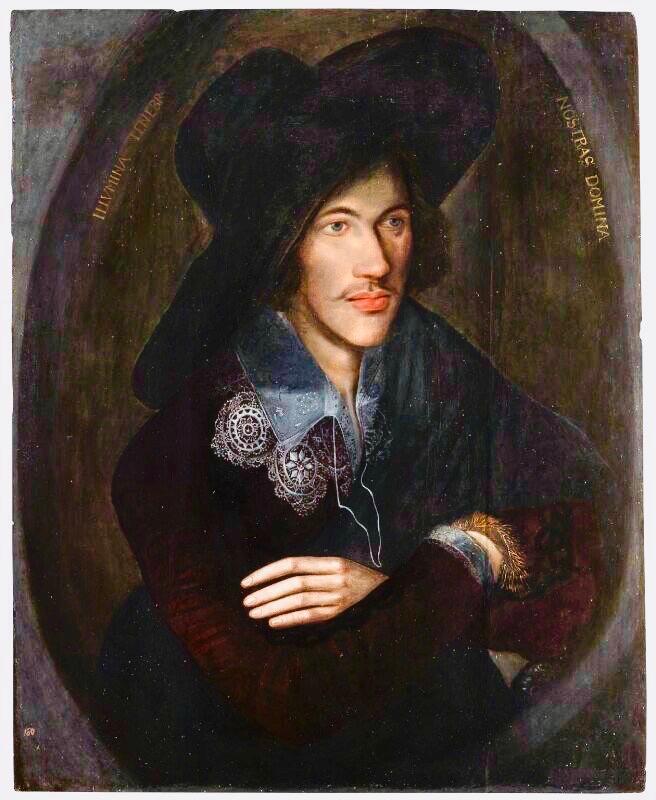John Donne and His Poetry

John Donne was an English poet and a contemporary of William Shakespeare. During Donne’s life time, his poetry was highly praised in the small circle of his admirers, but it went out of fashion some decades after his death. For a long time he was seldom read and scarcely appreciated. However, his poetry was rediscovered in the beginning of the 20th century, and he is today considered to be one of the greatest English poets of all time. John Donne's work was varied: he wrote sonnets and love poems, songs and elegies, sermons and religious poetry.
Donne is often said to be the first metaphysical poet in England, and many of his poems dig deep into human consciousness, asking engaging questions that challenge the readers. His poetry is mostly about love (physical and spiritual), about man's relationship with God, and about death and the afterlife.
Donne's style is unique and quite different from previous poets, in clear contrast to the smoothness of conventional Elizabethan poetry. One of the most striking features of his poetry can be seen in his opening lines, which are often abrupt and surprising – they often present a paradox or an ironic statement. In his poems, there is often an extensive use of wit and word-play, and he also uses complex metaphors and imagery that sometimes challenge the readers' understanding of the poem.
Below, you will find two of John Donne's most famous poems. You will find that they are quite different in length, content, and form. In order to better understand the full meaning of the poems, you should read the poems several times.
'No Man Is an Island' is often presented as a poem, but is in fact a section from his book Meditation XVII. In this short passage, he describes how we, as human beings, depend on each other and how we should feel a sense of belonging to the whole of the human race.
Pay attention to how Donne uses figurative language to describe humanity.
No Man Is an Island by John Donne
Tekstversjon
No Man Is an Island
No man is an island,
entire of itself;
every man is a piece of the continent,
a part of the main.
If a clod be washed away by the sea,
Europe is the less,
as well as if a promontory were.
as well as if a manor of thy friend’s
or of thine own were.
Any man’s death diminishes me,
because I am involved in mankind;
and therefore never send to know for whom the bell tolls;
it tolls for thee.
You will probably find that 'The Good-Morrow' is a bit more complex than 'No Man Is an Island', both in terms of language and content. But its message is still clear and direct.
This poem is a celebration of the purest kind of love. It describes a lover's thoughts as he wakes up next to his partner and reflects on how their lives have changed since they first met. Until falling in love, he and his beloved had merely been wasting their time. But now, things are different – all they care for is one another’s company, and nothing more. He presents their love as an intense and profound experience and something that will never die.
The Good Morrow by John Donne
Tekstversjon
The Good MorrowI wonder, by my troth, what thou and IDid, till we loved? Were we not weaned till then?But sucked on country pleasures, childishly?Or snorted we in the Seven Sleepers’ den?’Twas so; but this, all pleasures fancies be.If ever any beauty I did see,Which I desired, and got, ’twas but a dream of thee.And now good-morrow to our waking souls,Which watch not one another out of fear;For love, all love of other sights controls,And makes one little room an everywhere.Let sea-discoverers to new worlds have gone,Let maps to other, worlds on worlds have shown,Let us possess one world, each hath one, and is one.
My face in thine eye, thine in mine appears,And true plain hearts do in the faces rest;Where can we find two better hemispheres,Without sharp north, without declining west?Whatever dies, was not mixed equally;If our two loves be one, or, thou and ILove so alike, that none do slacken, none can die.
The Good Morrow
I wonder, by my troth, what thou and I
Did, till we loved? Were we not weaned till then?
But sucked on country pleasures, childishly?
Or snorted we in the Seven Sleepers’ den?
’Twas so; but this, all pleasures fancies be.
If ever any beauty I did see,
Which I desired, and got, ’twas but a dream of thee.
And now good-morrow to our waking souls,
Which watch not one another out of fear;
For love, all love of other sights controls,
And makes one little room an everywhere.
Let sea-discoverers to new worlds have gone,
Let maps to other, worlds on worlds have shown,
Let us possess one world, each hath one, and is one.
My face in thine eye, thine in mine appears,
And true plain hearts do in the faces rest;
Where can we find two better hemispheres,
Without sharp north, without declining west?
Whatever dies, was not mixed equally;
If our two loves be one, or, thou and I
Love so alike, that none do slacken, none can die.
Relatert innhold
Tasks related to the article about two of John Donne's poems: 'No Man is an Island' and the 'Good Morrow'.